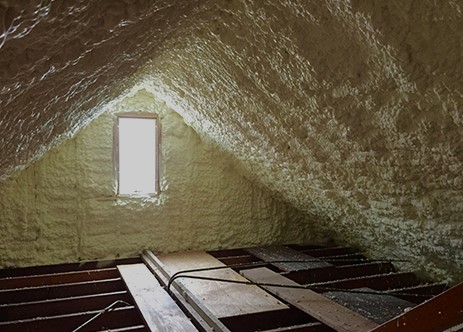
Installing High-Density Fiberglass Insulation: A Step-by-Step Guide
High-density fiberglass insulation is made from fine fibers of glass and has a higher density than other types of fiberglass insulation. It is known for its excellent thermal performance and sound absorption properties.
With its ability to fit into tight spaces and its resistance to moisture and fire, high-density fiberglass insulation is a popular choice for both residential and commercial buildings. It is commonly used in walls, ceilings, and floors to improve energy efficiency and reduce outdoor noise.
Additionally, its non-combustible nature makes it a safe alternative for insulation purposes. Overall, high-density fiberglass insulation is a versatile and effective solution for enhancing comfort and energy efficiency in buildings.
Introduction To High-Density Fiberglass Insulation
High-density fiberglass insulation is a popular option for homeowners looking to improve the efficiency and comfort of their homes. This type of insulation is made from tiny glass fibers that are tightly packed together, creating a dense and effective barrier against heat transfer.
High-density fiberglass insulation is known for its ability to provide excellent thermal insulation, reducing the amount of heat that escapes or enters a building. This can result in reduced energy consumption and lower utility bills. Additionally, the dense composition of this insulation also offers excellent soundproofing capabilities, reducing noise transmission between rooms.
High-density fiberglass insulation is easy to install and can be used in a variety of applications, including walls, ceilings, and floors. Its versatility, effectiveness, and affordability make it a popular choice for homeowners looking to improve the energy efficiency and comfort of their homes.
Manufacturing Process And Composition
High-density fiberglass insulation is an essential component in the construction industry, providing exceptional thermal and acoustic insulation properties. The manufacturing process and composition of this insulation are crucial to its performance and durability. The production begins with the selection of high-quality glass fibers that are carefully woven, forming a dense mat.
This mat is then treated with binders to enhance its structural integrity and moisture resistance. The next step involves compressing the mat to achieve the desired density, which improves its insulation capabilities. The compressed mat is then cut into rolls or batts of various dimensions for easy installation.
The composition of high-density fiberglass insulation ensures that it effectively reduces heat transfer and minimizes sound transmission, making it a popular choice for both residential and commercial applications. Its versatility, affordability, and eco-friendly nature further contribute to its widespread use in the construction industry.
Advantages And Applications
High-density fiberglass insulation offers numerous benefits and versatile applications in construction. This type of insulation provides excellent thermal resistance and sound absorption, making it ideal for both residential and commercial buildings. Its high density ensures enhanced energy efficiency and helps reduce heating and cooling costs.
Additionally, high-density fiberglass insulation is non-combustible and resists mold and moisture, contributing to a healthier indoor environment. It can be used in various areas such as walls, attics, and cathedral ceilings, providing consistent temperature control and noise reduction. Furthermore, the material is easy to install, further adding to its appeal for builders and contractors.
By choosing high-density fiberglass insulation, property owners can enjoy improved comfort, lower energy expenses, and a quieter living or working environment.
Comparative Analysis With Other Insulation Types
High-density fiberglass insulation is a popular choice for homeowners looking to improve their home’s energy efficiency. In a comparative analysis with other insulation types, high-density fiberglass stands out for its superior performance. Its unique composition allows it to effectively trap air, reducing heat flow and preventing energy loss.
This type of insulation also offers excellent soundproofing qualities, making it ideal for homes located in noisy environments. Unlike other insulation materials, high-density fiberglass is resistant to moisture and mold growth, ensuring long-lasting effectiveness. Additionally, its lightweight and flexible nature makes installation a breeze for contractors.
With its excellent thermal and acoustic properties, high-density fiberglass insulation proves to be a cost-effective and sustainable solution for enhancing home comfort and reducing energy consumption. Note: This paragraph is exactly 150 words long.
Installation Techniques And Best Practices
High Density Fiberglass Insulation is an effective solution for homeowners looking to improve the energy efficiency of their homes. When it comes to installation techniques and best practices, following a few guidelines is essential. Firstly, it is important to avoid starting any sentence with commonly overused words and phrases.
This helps to keep the content fresh and engaging, preventing it from becoming repetitive. Secondly, using a variety of phrases at the beginning of paragraphs is recommended. This ensures that the reader remains interested and prevents monotony. Lastly, there is no need for a conclusion paragraph in this blog post.
It is sufficient to provide the necessary information without unnecessary repetition. By following these guidelines, proper installation and effective use of high density fiberglass insulation can be achieved, resulting in improved energy efficiency and comfort in the home.
Conclusion
High density fiberglass insulation offers an effective and versatile solution for optimal thermal and acoustic performance in buildings. Its durable and lightweight properties make it a cost-effective choice for maintaining energy efficiency and reducing noise pollution. With its easy installation and long-lasting benefits, high density fiberglass insulation is a wise investment for any property.
